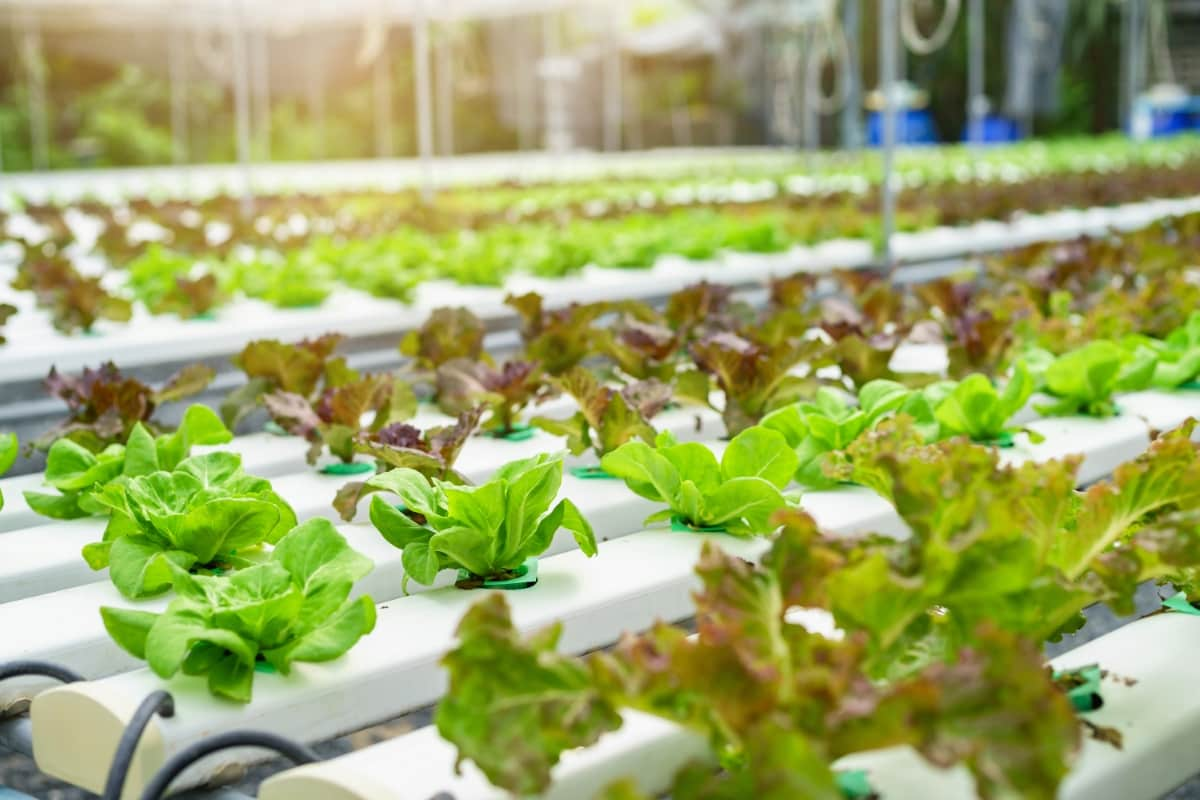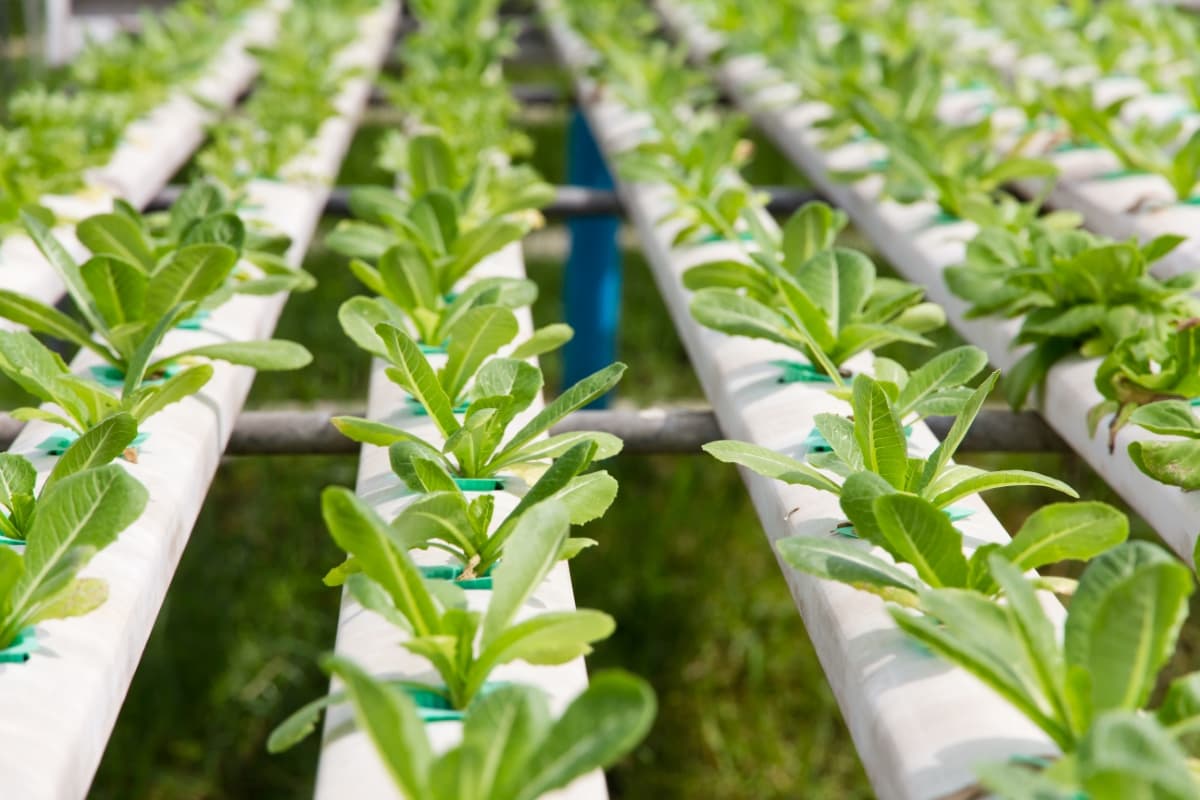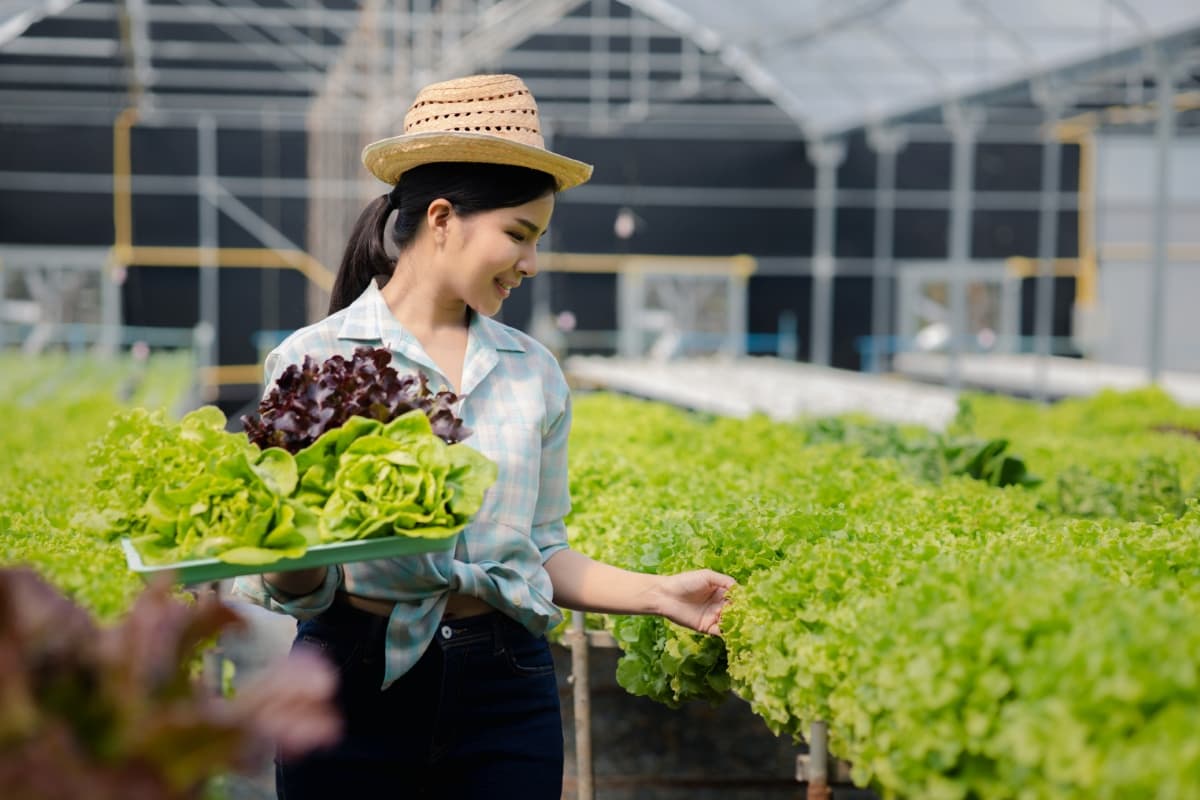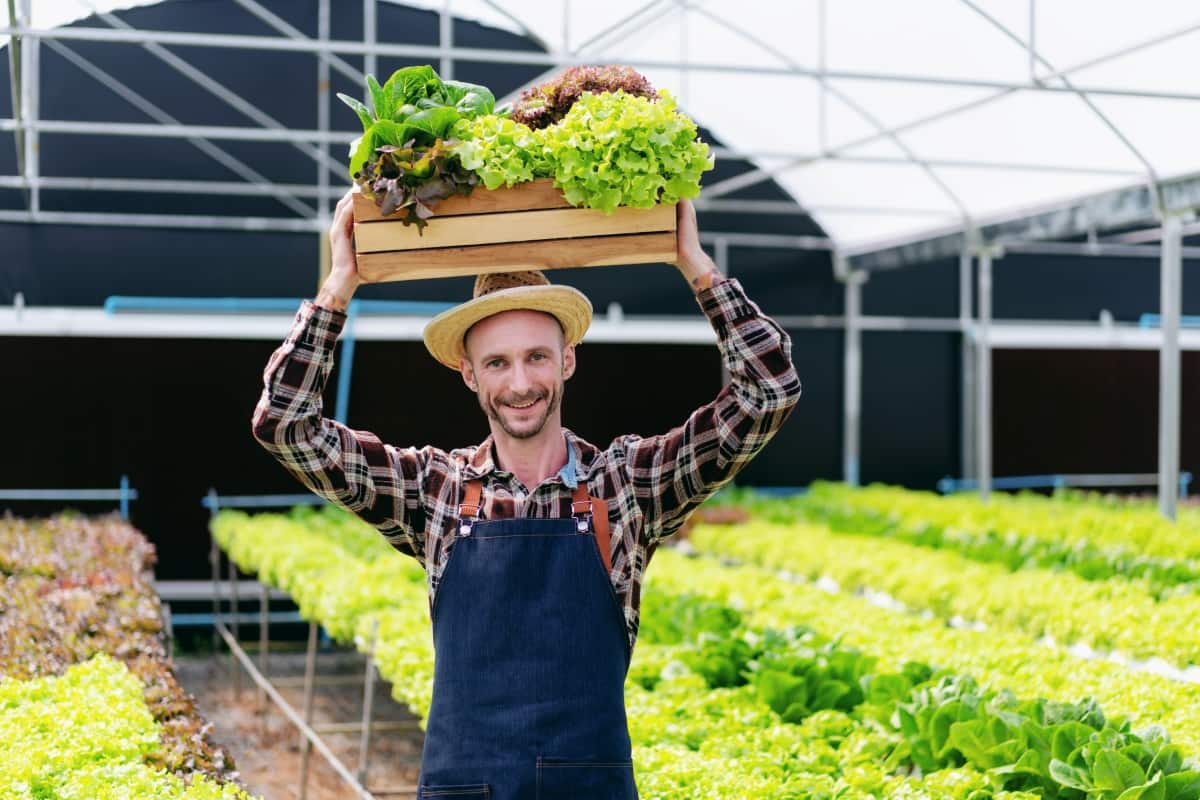Hydroponic farming is a way to grow plants without soil, using nutrients in water. It’s gaining popularity in Dubai, a city known for tall buildings and modern designs, as a sustainable way to grow food. This method is attractive in the desert because it uses less water, which is important in the dry UAE climate.

People often ask about the minimum cost to start a hydroponic farm, set up a hydroponic system, or how much a 1-acre hydroponic farm would cost in Dubai. The answers vary depending on scale, technology, and crop types. With hydroponics, various plants and crops can grow in the UAE, and entrepreneurs are keen on understanding the specifics, such as which crops are suitable and the specifics of irrigation systems used in hydroponic farms in Dubai.
Hydroponic Farming in Dubai
Types of Hydroponic Systems Used in Dubai
In Dubai, various hydroponic systems are tailored to maximize efficiency and productivity. This includes a method called the “nutrient film technique,” where nutrients flow continuously over the plant roots. There’s also the aeroponic system, where roots are suspended in air and misted with nutrients, and the deep water culture, where plants float on water while roots are submerged.
The ebb and flow system, which floods the growing area with nutrient solution at specific intervals, is also popular. Each system has its cost implications, with the deep water culture being among the less expensive options and aeroponics being on the higher end due to the technology involved.
Crops Suitable for Hydroponic Farming in Dubai
A diverse range of crops can thrive in hydroponic farms in Dubai. Leafy greens like lettuce, spinach, and kale are commonly grown due to their quick harvest cycles and minimal space requirements. Herbs such as basil, mint, and cilantro are also popular for their high value and demand in local markets. Tomatoes, cucumbers, and peppers are also suitable for hydroponic systems and are profitable due to the year-round demand. These plants are well-suited for the controlled conditions of hydroponic farming, which can produce higher yields than traditional soil-based methods.
Factors Affecting Hydroponic Farming in Dubai
Several factors can impact the success of hydroponic farming in Dubai. Although mitigated by the systems’ efficient use, the availability and cost of water remain a significant consideration. The big upfront cost is important too. Starting a hydroponic system can be pricey, but over time, it usually pays off with lower ongoing expenses and bigger harvests.
In case you missed it: Essential Hydroponic Farming Equipment for Starting Plants in Hydroponics

Access to quality nutrients and a stable electricity supply for the pumps and control systems are also essential. Skilled labor is needed to manage these farms effectively, which can be challenging regarding training and costs.
Irrigation Systems Used in Hydroponic Farms in Dubai
Irrigation in hydroponic systems in Dubai is highly sophisticated to conserve water and provide precise nutrient solutions to the plants. Depending on the system, the irrigation setup typically includes timers, pumps, and drippers or misters. The recirculating nature of these systems ensures that water use is minimized, which is crucial in Dubai’s arid environment. The control over the frequency and quantity of water and nutrients provided to the plants results in lower water usage than traditional farming methods.
Pest and Disease Management in Hydroponic Farms in Dubai
Pest and disease management in hydroponic farms in Dubai involves a proactive approach. Without soil to harbor many types of pests, the incidence of infestation can be lower. However, careful monitoring is necessary to prevent outbreaks. Biological control methods, like introducing beneficial insects, are preferred over chemical pesticides to maintain a clean and healthy environment. Keeping the right nutrients and pH levels in the water stops diseases from spreading.
Hydroponic Farming in Dubai’s Climate
Dubai’s climate poses unique challenges for agriculture, with its high temperatures and low rainfall. Hydroponic farming provides a solution by allowing crops to grow indoors or in greenhouses, shielded from the harsh outside environment. The controlled climate conditions in hydroponic systems ensure that extreme temperatures do not affect plant growth. This results in the ability to grow crops year-round, providing a consistent and secure supply of fresh produce in the region.
In case you missed it: How to Choose the Right Hydroponic Grow Light for Plants

Cost and Profit of Hydroponic Farming in Dubai
When considering hydroponic farming in Dubai, potential investors often inquire about the cost and profit figures associated with this agriculture method. For instance, a basic setup for a small-scale operation may start around AED 10,000, while a more extensive, commercial-scale farm could require an investment upwards of AED 500,000. The cost to set up a hydroponic system varies with complexity: simple systems may cost less, whereas advanced systems with automated controls can be more expensive.
A 1-acre hydroponic farm cost can reach the millions, considering the infrastructure, systems, and technology required to operate efficiently. Yet, these farms can be quite profitable. A typical hydroponic farm in Dubai can achieve a profit margin of 20-25%, which is quite substantial considering the global average. Additionally, the water efficiency of hydroponics, which uses up to 90% less water than conventional farming, is a key factor in its profitability in the water-scarce region.
Government Support for Hydroponic Farming in Dubai
Dubai’s government strongly backs hydroponic farming to increase local food and keep food supply secure. Various subsidies, grants, and incentives are available for entrepreneurs and existing farmers to transition to hydroponic methods. The government also offers land allocations, funding for technology upgrades, and resources for research and development in the field. This support aims to create a sustainable and self-sufficient agricultural sector in Dubai, in line with the UAE’s economic diversification and sustainability vision.
Hydroponics Training in Dubai
With the growth of hydroponic farming in Dubai, there’s a demand for skilled professionals knowledgeable in this area. Various institutions and agricultural organizations provide hydroponics training, ranging from short courses to comprehensive programs. These training sessions cover the fundamentals of hydroponic farming, system design and maintenance, nutrient management, and crop selection.
In case you missed it: How to Choose the Right Plants for Vertical Hydroponics

They also offer hands-on experience, vital for understanding the practical aspects of running a hydroponic farm. This education is crucial for the success of hydroponic ventures, ensuring that farmers and technicians are well-equipped with the knowledge and skills to operate efficiently in the unique environment of Dubai.
Conclusion
Hydroponic farming in Dubai presents a promising avenue for sustainable agriculture, bolstered by governmental support and comprehensive training programs, paving the way for a future of high-yield, water-efficient crop production in the heart of the desert.
- Feed Your Flock for Less: Top 10 Tips to Save on Chicken Feed
- Ultimate Guide to Ossabaw Island Hog: Breeding, Raising, Diet, and Care
- Hatching Answers: The Top 10 Reasons Your Chickens Aren’t Laying Eggs
- Eggs and Economics: Breaking Down the Cost of Raising Backyard Chickens
- Defend Your Greens: Proven Methods to Keep Iguanas Out of Your Garden
- Ultimate Guide to Cinnamon Queen Chicken: A Comprehensive Guide for Beginners
- Ultimate Guide to California Tan Chicken: Breeding, Raising, Diet, Egg-Production and Care
- Ultimate Guide to Marsh Daisy Chicken: Breeding, Raising, Diet, and Care
- 10 Types of Chicken Farming Businesses You Can Start for Profits